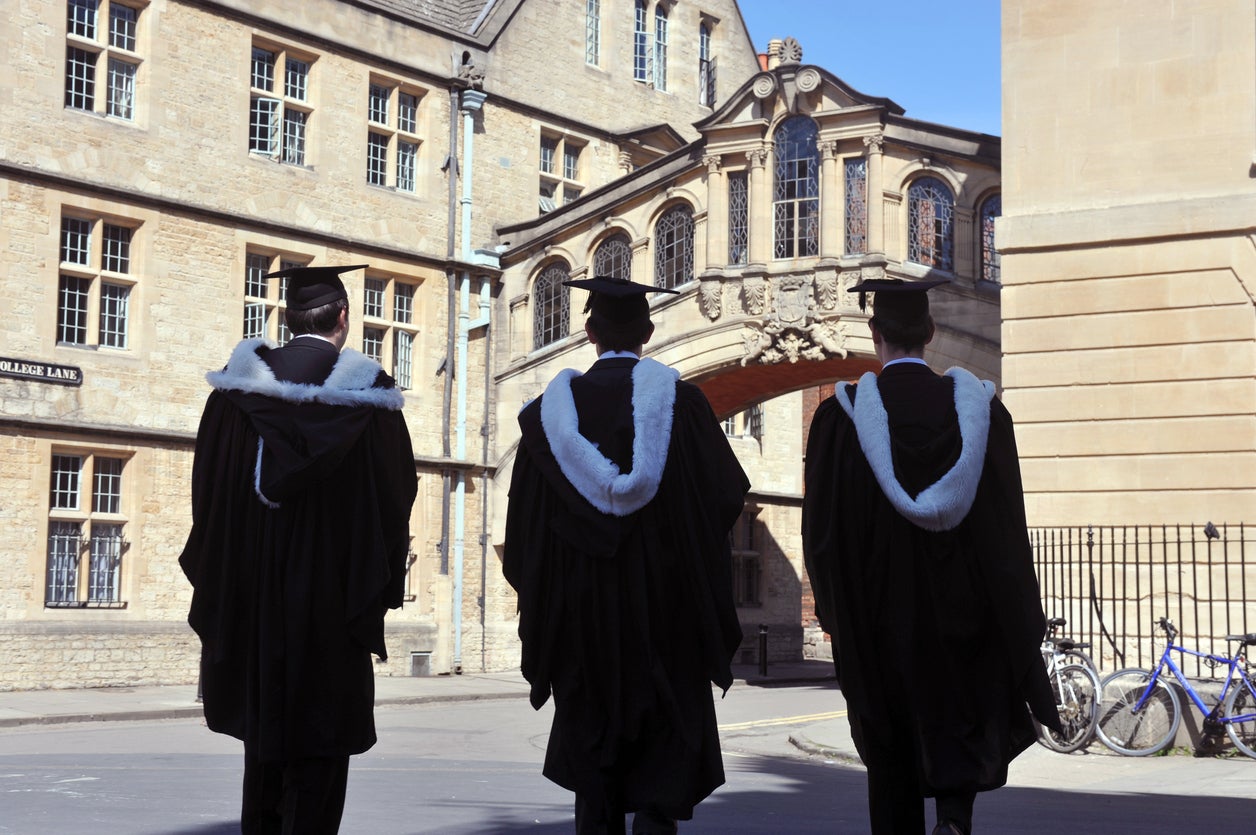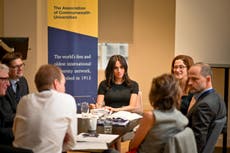50 years ago, my university days were tough – and the elitism is getting worse, not better
The reason for the British class system being as entrenched in 2018 as it was for me back in 1965 is that money buys opportunity


It’s no surprise that our top universities doggedly refuse to acknowledge their role in perpetuating the ugly truth about modern Britain: money and the right class still get you access and a seat at the top table. When it comes to choosing which pupils to accept for a highly prized place at Oxbridge, pedigree is everything. The Sutton Trust has discovered that just eight elite secondary schools send the same number of pupils to Oxford and Cambridge as three quarters of all the other schools in the UK.
Pupils from independent schools make up 42 per cent of places at Oxbridge, and are seven times more likely to be successful than anyone from a comprehensive. A third of the applications for Oxbridge are from state schools, but these pupils only gain a quarter of the places. The Sutton Trust said that these discrepancies were “unacceptable”.
In England, just 18 per cent of all students taking A-levels are at a private school – yet that small percentage will be getting better jobs, and are twice as likely to get a place at a good university. The latest data shows that Eton gained 68 Oxbridge offers in a year, Westminster School 88, and St Paul’s School 53. The high volume of acceptances is clearly the result of intensive preparation for the selection process, involving careful nurturing of pupils so that they perform to the best of their ability and are capable of withstanding the rigours of entrance examinations and interviews with confidence. At this level of academic achievement – when so many achieve the very highest grades (usually three A*s) – social skills are what mark out one candidate from another.
I know from my own experience that preparation and encouragement is everything. To gain a university place you (an insecure, anxious teenager) have to be interviewed by older, very clever people, the likes of whom you might never have met during your limited life experiences, and it’s extremely daunting. The work you submit and the extracurricular activities you will have participated in while at school (on top of all those exams and revision) – all of which your parents have to pay for – are all taken into account. You can’t just be accepted on brains; you have to be the “right” kind of pupil for Oxbridge. They don’t want failures.
My parents left school at 14, but they bequeathed me burning ambition, and a ruthless ability to focus on getting what I wanted. On my first day at university, I discovered there were five girls and 95 boys in my year, and over three quarters of them had attended private school.
That was half a century ago, and the Sutton Trust’s new research proves that privilege still rules in modern Britain. Class barriers are just as rigid now as they were for me. Just as the poor pay a disproportionate amount of their income in tax compared to the very wealthy, so they have to fight that much harder for the same chance at experiencing educational excellence.
It makes my blood boil when posh actors complain that their background has held them back, that going to Eton didn’t help and that working class accents are all the rage. If that’s in any way true, acting must be one of the few jobs where accent and class favour the lower classes.
The vast majority of state school students are not achieving their potential because of poor careers advice. The government set up the Careers and Enterprise Company four years ago in order to tackle the problem. It has received over £40m of public funds, and the CEO, Claudia Harris, earns £135,000 a year, almost as much as the prime minister. Recently, MP’s were outraged to discover that the company had organised two conferences costing over £200,000 of public funding, when they could have reduced the costs with sponsorship.
They have spent £900,000 on research (with another £200,000 to go) – but has that filtered through to schools? It doesn’t appear that is the case. From last September every state secondary school or college has to have a “career leader”, a curriculum directly linked to careers, personal guidance for students, plus encounters with employers and employees to reinforce the reality of the world of work. Known as the Gatsby benchmarks, these standards remain a dream rather than a reality.
Last June, 2,880 schools and colleges completed a self-evaluation exercise, but most admitted they were only achieving two out of eight of these goals. Since then, 2,000 headteachers marched on Westminster to beg for increased funding, as parents complained they were being asked to fund everything from toilet rolls to pens and exercise books.
Phillip Hammond gave out a £400m bonus in the autumn budget to help schools “buy the little extras they need” – a remark which was received like a cup of cold sick. Further Education colleges have lost a third of their funding in recent years – and still we wonder why social mobility has stagnated. The reason for the British class system being as entrenched in 2018 as it was for me back in 1965 is that money buys opportunity.
If you start on the bottom rung, it’s getting harder rather than easier to climb the ladder of opportunity in the UK.







Join our commenting forum
Join thought-provoking conversations, follow other Independent readers and see their replies